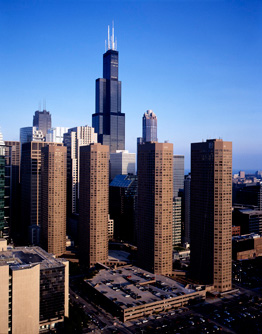
In our last blog, we defined and pointed out some differences between single station and system smoke detection devices. Now let’s turn our attention to what’s involved with the installation of these devices.
Labor is usually the biggest cost in installation, so how much labor does it take to install smoke alarms and smoke detectors? Smoke alarms in non-single family applications need to be hard wired to the building’s 120 vac electrical system. That means conduit and wire from a dedicated breaker in each dwelling unit’s breaker box. The 120 vac would be extended to each smoke alarm in the dwelling unit, as well as a tandem wire that interconnects each smoke alarm in order to activate the sounder of every other smoke alarm in the unit once a particular smoke alarm goes into alarm. Each dwelling unit would have to be installed this way.
Additionally, if the dwelling unit is in a building that has a fire alarm system and is designated as an accessible, hard-of-hearing or Section 504 unit, a separate low frequency sounder would need to be installed in each bedroom and in the living space, as well as any visual devices required by local accessibility code requirements. If visual notification is required, such as in accessible units, then they must operate when the building’s fire alarm system activates as well as when the smoke alarm activates, so they need to be operated by a supervised power supply and controlled by the fire alarm system. That means the smoke alarms in these units must be monitored by the fire alarm system so the device that controls the visuals can operate in both circumstances. These audio/visual devices are usually 24 vdc, so local electrical codes may allow these to be installed without conduit, but they are connected to the fire alarm system so that circuitry would also have to be brought into the unit.
The fire system smoke detector uses a low voltage signaling line circuit (SLC) from the fire alarm panel, which is used to connect all the detectors. The detectors are mounted onto a separate base that has a low frequency sounder built in. This sounder requires a separate, supervised 24 vdc circuit from the fire alarm system or remote power supply. As mentioned before, local codes determine whether this circuitry needs to be in conduit, but the same circuit can serve a number of dwelling units, so there’s no need to run a separate power feed originating from within each unit. Fire system programming allows the smoke detector to function just like a single station alarm as well, not calling the fire department and self-restoring when the smoke level falls below the alarm threshold. The sounder bases can also be programmed to sound when any other device in the system activates, providing general alarm audibility in the units. Any requirements for visuals can be done with a single controlling device since the detectors are already monitored and have the low frequency sounder built in.
The smoke detector with a low frequency base does cost about $75 more than the single station device so some designers choose based on that, rather than looking at the total cost of installation. The average total cost of installing a hard wired smoke alarm is $150, plus you’d have to mount additional low frequency sounders and feed their circuits in a different pathway when needed. Smoke alarms also have to be replaced after 10 years, whereas smoke detectors can remain in place so long as they pass sensitivity tests. Smoke detectors are also supervised, so the building owner has a record of when a detector activates, as well as getting an indication when a detector is removed from its base.
Sometimes single station smoke alarms make sense in existing buildings and small apartment buildings, but as you can see, system smoke detectors:
- Are less labor intensive
- Provide much more operational latitude
- Provide code required sound output
- Last longer
- Are supervised
- Cost less to install overall
Gamewell-FCI has the type of smoke detector you need for your projects that provide state-of-the-art protection and notification for less installation cost than the installation cost of single station smoke alarms. Give Affiliated Fire Systems a call to find the right type of detection for your property.
Gene Rowe, SET Affiliated Fire Systems, Inc. Downers Grove, IL


Send us a Comment